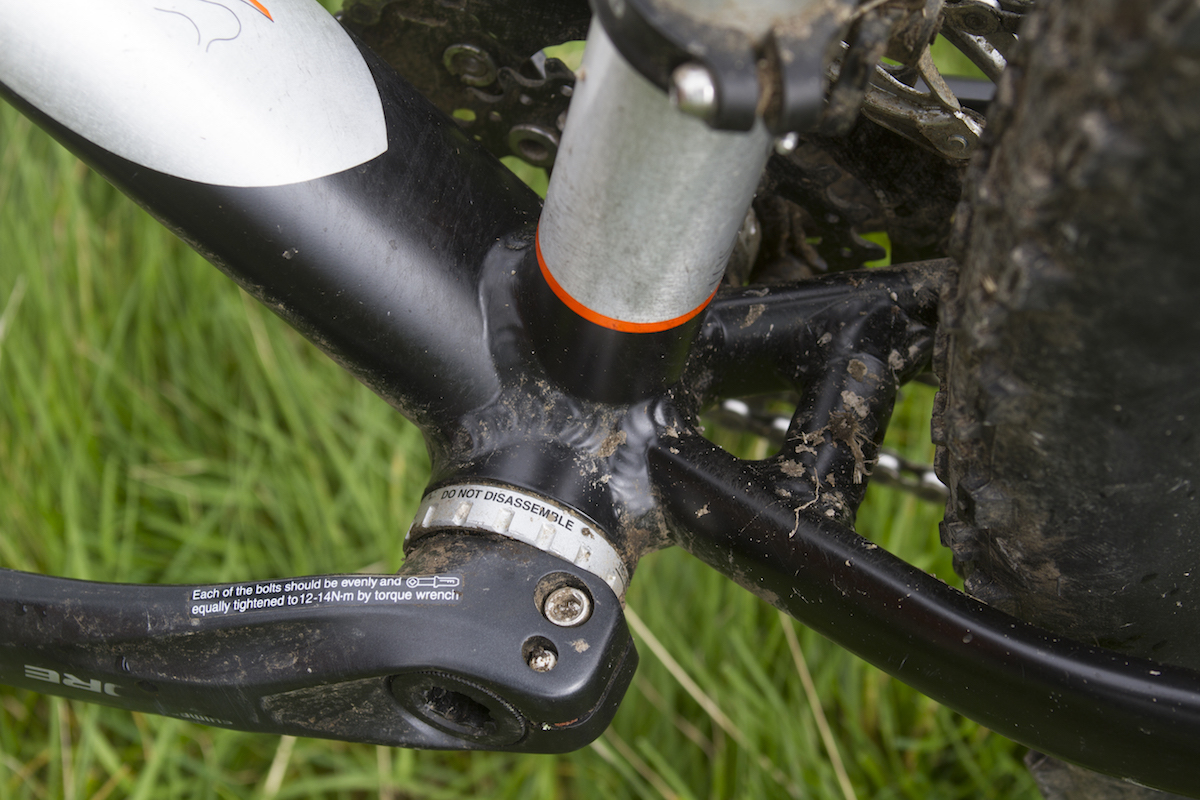Rewind to Issue #108 of Singletrack Magazine, for Wil’s review of the Smith Optics Rover MIPS Helmet.
Better known for its eyewear and goggle range, Smith Optics is a relative newcomer to the helmet market. Despite this, the company has made quite a splash since introducing the Forefront and Overtake helmets thanks to their distinctive designs and innovative Koroyd technology.

The Rover is the latest helmet offering from Smith Optics, and it comes into the range as a cheaper alternative to the existing Forefront. Stylistically speaking, it’s a little more conventional than the Forefront which is a bit of a love-it-or-hate-it design.
Our test helmet is a MIPS-equipped model, though a non-MIPS Rover is also available for 20 quid less. All Rover helmets come in three sizes, and you can also get a non-peaked version called the Route.

The Rover is still built with a polycarbonate outer shell and an EPS foam core, but instead of lining the whole helmet inner with Koroyd (which is apparently quite an expensive material), it relies on a small Koroyd panel on each side of the head. Made up of lots of tiny plastic tubes, Koroyd is designed to offer a lightweight and breathable crumple zone that Smith claims is better at absorbing impact energy than EPS foam. With the Rover, Smith has used less of it, but placed it in the spots where you’re most likely to need it.

A side benefit of the reduced Koroyd coverage is improved ventilation. I’ve found the Rover to be a little breezier than the Forefront, with 18 large vents creating good airflow that isn’t interrupted as much by the tiny plastic Koroyd straw tubes. Mind you, coverage around the back of the helmet isn’t quite as deep as the Forefront, but it still offers more protection than a traditional cross-country lid.

The finish on the Rover is excellent, and I dig the toxic-waste matte green colour. The full in-mould construction ensures that there’s less exposed foam to damage, with the PC shell wrapping all the way along the underside of the helmet rim.

Helmet fit is always going to be subjective, but Smith has gone some way to ensure the Rover will work for as many noggins as possible. The VaporFit system provides multiple anchor points for adjusting the harness, so it’s worth experimenting with it to get the fit dialled in properly. Its svelte profile also minimises interference with riding glasses, which is a pet peeve of mine. The straps could be a little more robust though, as occasionally I’d have to retighten them. I’d also like to see thicker padding inside.

The visor isn’t adjustable, but while I appreciated its sturdy feel, I did find it obstructed vision somewhat, as the Rover has a habit of sitting quite low on the forehead. No amount of fettling with the VaporFit system seemed to rectify this, but it could simply boil down to my weird shaped head. It’s been the blame of many things on previous occasions, so it wouldn’t be the first time. (It’s not your weird head, Wil, I’ve found the visor hides a lot of the world and would be happy to take half an inch off it with a Dremel – Chipps)
However, I have found that MIPS helmets do feel a little wobblier than other lids, as by design, the MIPS system does allow the helmet to shift around the harness somewhat. While MIPS certainly has a story to tell, I’d personally elect for the non-MIPS version for a more snug and secure fit.

Overall
While cheaper than the Forefront, the Rover is still a high-tech lid packed with Koroyd and MIPS goodies. It’s highly adjustable, and with its improved ventilation, I actually prefer the Rover in use over the more bodacious Forefront.





